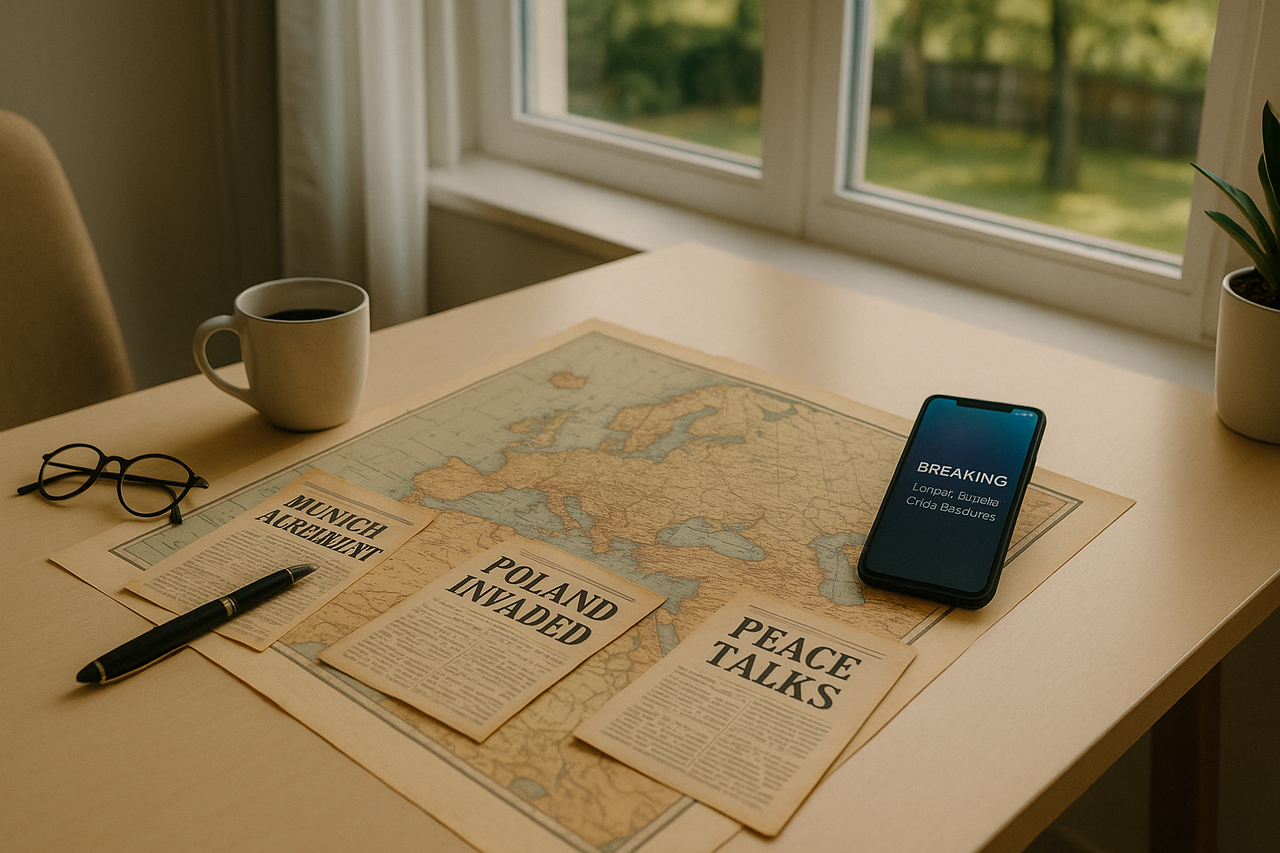Is the World Marching to the Same Tune Again?

We may be about to repeat history in ways that will not be obvious tomorrow, next week, or even next year. This post discusses politics and history; if you prefer to avoid that, stop reading here.
Russia's war against Ukraine echoes the mistakes of appeasement made by the United Kingdom and France toward Nazi Germany. In 1938, the Munich Agreement ceded the Sudetenland from Czechoslovakia to Germany1. Hitler then demanded more and invaded Poland in 1939, which led Britain and France to declare war two days later2. Appeasement gave the aggressor what he wanted and helped set the world on a path to a catastrophic conflict.
Appeasement of Russia is not the answer. What should be done is not clear, and I will wait to see what diplomats propose. One point is clear: a formal U.S. guarantee to defend Ukraine would require a Senate-ratified treaty or a law passed by Congress34. The 1994 Budapest Memorandum, which accompanied Ukraine's decision to give up the nuclear weapons it inherited, provided security assurances rather than a binding defense guarantee, and it was not ratified by the Senate5. NATO members have provided extensive aid but have not deployed combat troops to Ukraine6. Europe needs to continue rebuilding its armed forces and reduce its reliance on the United States for security. The United States will likely continue to lead in technology and ideas, but it is no longer the manufacturing powerhouse it once was; even with new factories, many people do not want factory work, and heavy automation will create its own challenges.
What is the answer for Ukraine and Russia? It may not end in Ukraine's favor. The pattern resembles the late 1930s: seize land, trade for temporary peace, then push again. If there is no concrete peace, the world, and especially the United States if Congress authorizes a formal commitment, will have to either step up or stand down if Russia repeats this elsewhere. Another path is a protracted war in which Ukraine holds on and hopes for political change in Moscow. Either way, Ukraine has lost a generation, and the country will carry lasting scars, including widespread trauma, for many years after any peace.
Both World Wars to date were started in and over Eastern Europe land grabs (while not the only reasons, major reasons). Is the world marching to the same tune again? Only the distant future will tell.
Footnotes
Munich Agreement overview (Sudetenland ceded to Germany, Sept. 30, 1938), Encyclopedia Britannica: https://www.britannica.com/event/Munich-Agreement ↩
Germany invaded Poland on Sept. 1, 1939; Britain and France declared war on Sept. 3. Chamberlain radio address (Yale Avalon): https://avalon.law.yale.edu/wwii/gb3.asp ; IWM background: https://www.iwm.org.uk/history/how-europe-went-to-war-in-1939 ↩
U.S. Constitution, Article II Treaty Clause (two-thirds Senate consent): https://www.archives.gov/founding-docs/constitution-transcript ↩
CRS overview of treaties, congressional-executive agreements, and sole-executive agreements (PDF): https://sgp.fas.org/crs/row/LSB11048.pdf ↩
Budapest Memorandum text and status (security assurances, not a Senate-ratified defense treaty): https://www.securitycouncilreport.org/atf/cf/{65BFCF9B-6D27-4E9C-8CD3-CF6E4FF96FF9}/s19941399.pdf ; https://treaties.un.org/Pages/showDetails.aspx?objid=0800000280401fbb ↩
NATO pages noting no deployment of NATO combat troops to Ukraine; UK House of Commons Library briefing: https://www.nato.int/cps/en/natohq/topics_192648.htm ; https://commonslibrary.parliament.uk/research-briefings/cbp-9477/ ↩